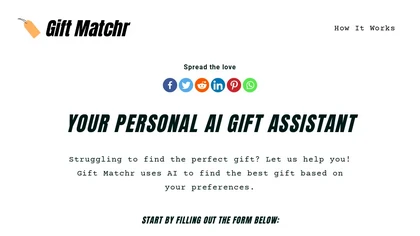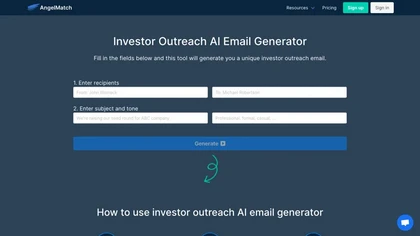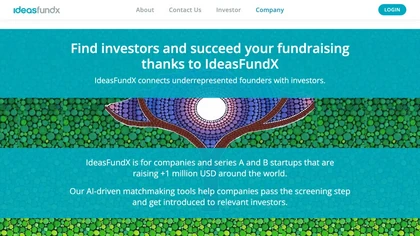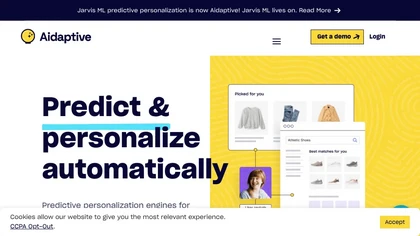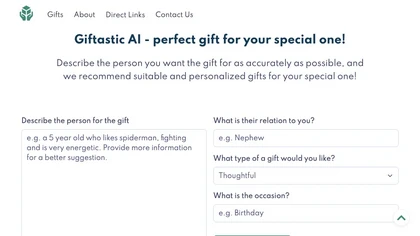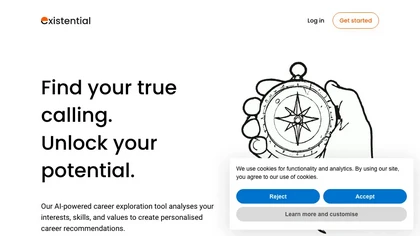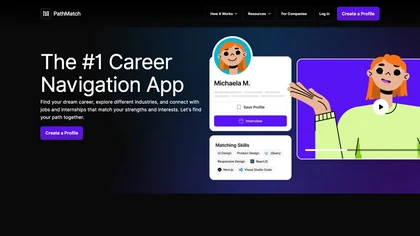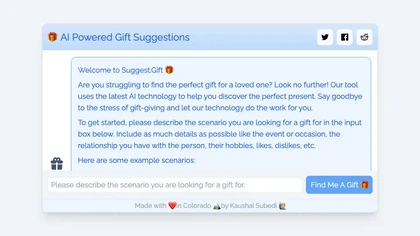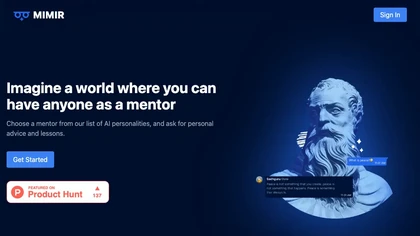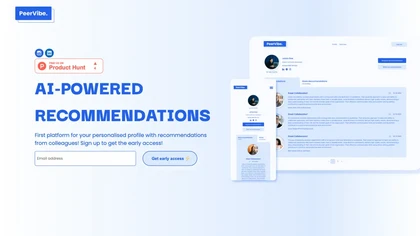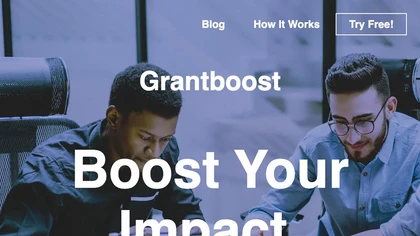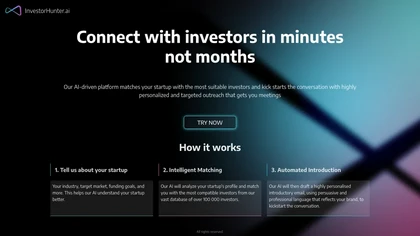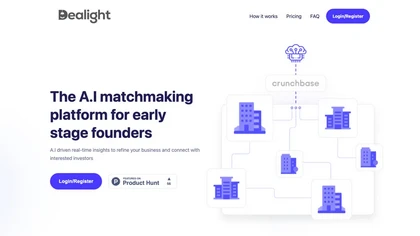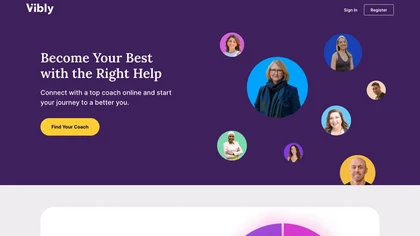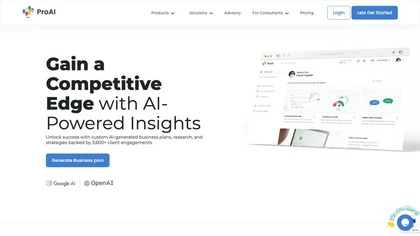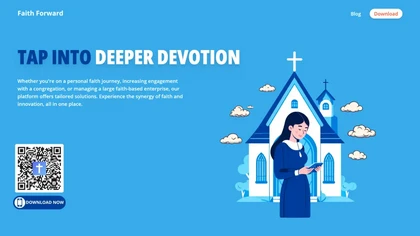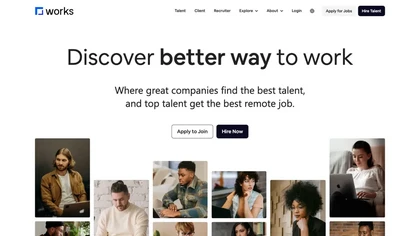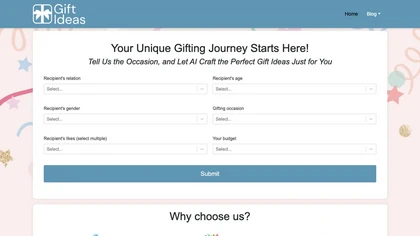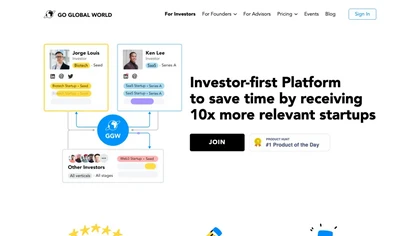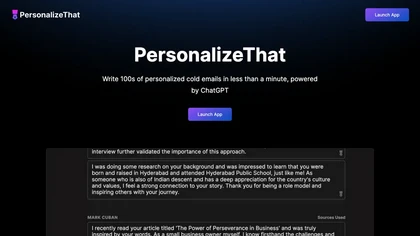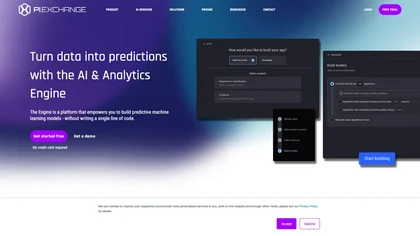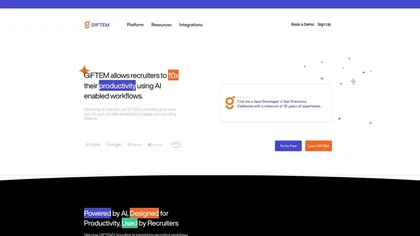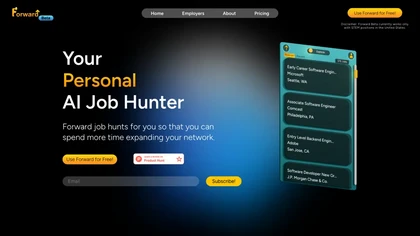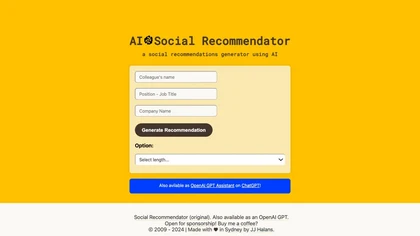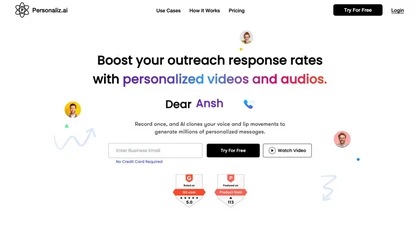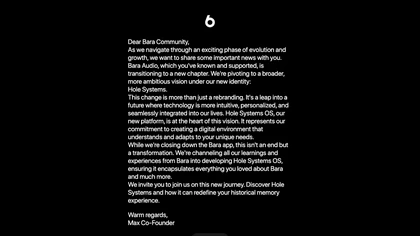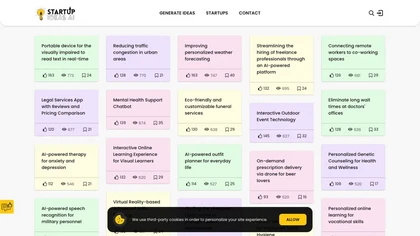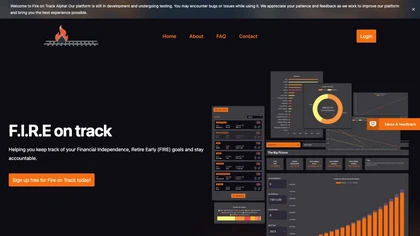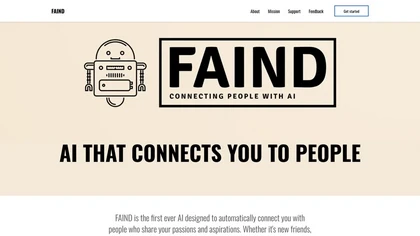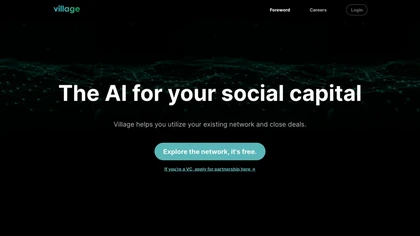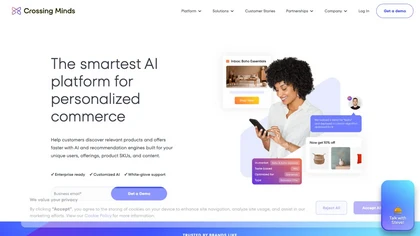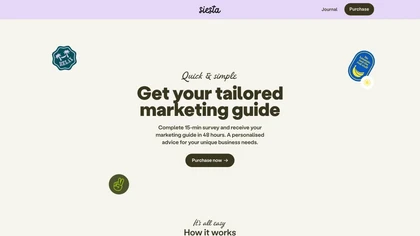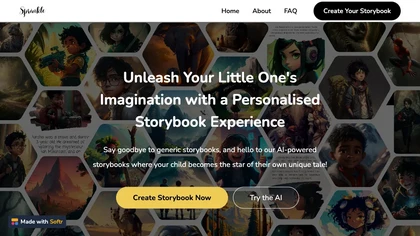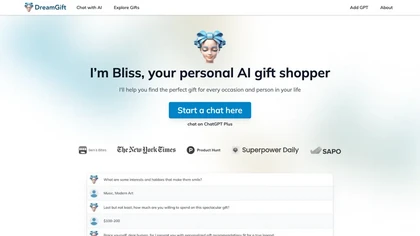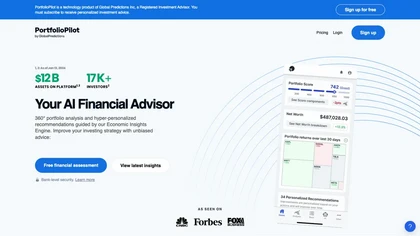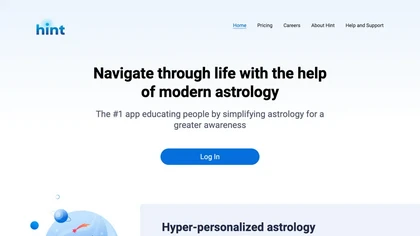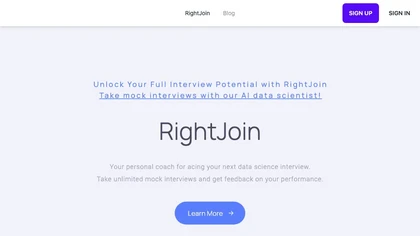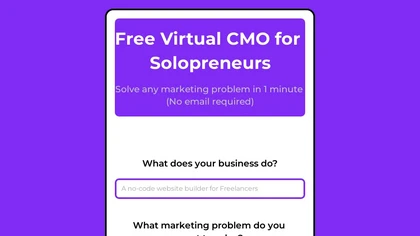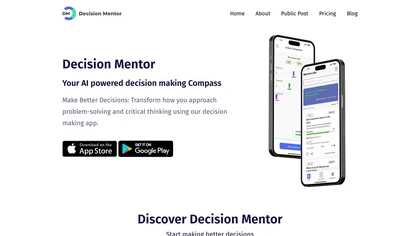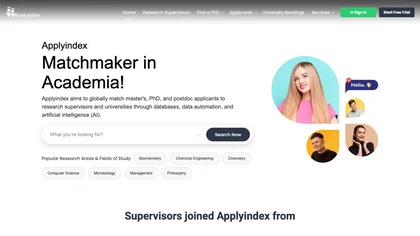AI use cases for Philanthropy
Generative AI can be applied in various applications for philanthropy. Here are some examples to explore below for inspiration with AI tools to get you started with using AI in philanthropy.
🛠️ 70 AI tools for Philanthropy
Explore a dynamic list of some of the most popular tools to get you started with various AI use cases and applications for Philanthropy to streamline your workflows and productivity today.
Gift Matchr features
- Gender
- Age group
- Relationship
- Budget
- Occasion
Angel Match features
- Personalized investor outreach email generation
- Input recipients and desired tone selection
- Database of over 100,000 investors
- Streamlined connection between entrepreneurs and funders
- Additional features like investor and pitch deck databases, fundraising templates
GiftMeThat features
- Advanced search
- Gift curation
- Assisted gift selection
- Dedicated gift concierge service
- Free limited time gift concierge
IdeasFundX features
- Matchmaking between startups and venture capitalists
- AI-driven matching algorithms
- Company profile creation for startups
- Qualification reviews for startups
- Introduction to investors based on matching algorithms
Aidaptive features
- Recommendations
- Pricing
- Search
- Merchandising
Giftdeas features
- Gift selection
- Friend interest
- Age
- Relationship
Venture Matching features
- Predictive investment matching
- Valuable insights generation
- User-friendly dashboard
- API integration for real-time data access
- Company parsing and support services
🔥
Create your account, save tools & get personal recommendations
Receive a weekly digest of our handpicked top tools.
Unsubscribe anytime
GiftasticAI features
- Finding gift ideas
- Analyzing personality
- Suitable recommendations
- String attachment
AdmitGPT features
- Personalized college recommendations
- Essay feedback
- Interview preparation
- Scholarship navigation
- Real-time feedback
Existential features
- Career exploration
- Interest analysis
- Skills assessment
- Value alignment
- Potential career path suggestion
EasyGift features
- Profile and interest analysis
- Tailored gift ideas
- Swift suggestions
- Personalized recommendations
- Streamlined gift-giving process
pathmatch.com features
- AI-powered career matching
- Personalized career matches
- Access to 150+ different careers
- Smart notifications for application deadlines
- Hireability score comparison with peers
Suggest Gift features
- Suggesting great gift ideas
- Eliminating stress of gift-giving
- Using latest technology
- Input details about person and occasion
Mimir features
- Matching
- Mentor
- Advice
- Questions
- Previous queries
PeerVibe features
- AI-powered recommendation platform
- Personalized profile suggestions
- Authentic recommendations from real people
- Elimination of the risk of fraudulent bot signups
- Tailored networking opportunities
Grantboost features
- Grant proposal creation
- Analysis of essential details
- Tailored grant proposals
- Copy and paste information
- Customized output
Smart Gift AI features
- AI-powered personalized gift finder
- Utilizes advanced AI technology
- Identifies the perfect gift based on recipient's preferences and emotions
- Powered by OpenAI's GPT assistant and sentiment analysis technology
- Offers a curated selection of thoughtful gift options
Investor Hunter features
- Automated matching of startups with investors based on industry, target market, and funding goals
- Utilizes intelligent matching AI to analyze startup profiles and identify compatible investors
- Access to a database of 100,000 investors for matching purposes
- Automated drafting of highly personalized introductory emails for effective outreach
- Reflects startup brand in the outreach process to initiate conversations effectively
Dealight features
- Matchmaking platform
- Utilizes public and private data sources
- Detailed pitch deck suggestions
- Simulated investor questions
- Market statistics analysis
Insightful features
- Provide personalized on-demand coaching
- Focus on specific needs
- Available anytime, anywhere
- Blog with latest insights on living a fulfilling life
- Accountability coaching to help young professionals reach full potential
Vibly features
- AI matching algorithm
- Personalized coach recommendations
- Tailored coaching experience
- Evidence-based techniques
- Convenient online coaching sessions
Cele App features
- Personalized gift recommendations
- Short quiz for gift customization
- Rating and browsing gift options
- Connecting with top gift options based on preferences
- Saving family members and products in a profile
ProAI features
- Business strategy generator
- Interactive Guidance and follow up
- Metrics monitoring and insights
- Market research
- Financial forecast
- Pitch deck generator
giftassistant.io features
- Input occasions
- Input likes
- Personalized suggestions
- Data storage
- Registration
Perfectgift features
- Generate unique gift ideas
- Suggest custom-made gifts
- Improve accuracy with more information
- Include hobbies and relationships
- Does not offer purchasing advice
Gift Ideas AI
4.9Gift Ideas AI features
- Offer personalized gift ideas
- Consider interests, age, gender, and special occasions
- Wide range of budget-friendly options
- Learns from your gift-giving history
- Send timely reminders
- Seamless shopping experience
Cool Gift Ideas
4.3Cool Gift Ideas features
- Suggest creative gift ideas
- Offer new and easy-to-use ideas
- No copyright infringement
- Discover unique gifts
Faith Forward features
- Tailored solutions for personal faith development
- Content management
- Community engagement tools
- Personalized devotions
- Insightful analytics
Works features
- Job requirement understanding
- Candidate experience and skills comparison
- Efficient talent selection process
- Personalized matching results
- Data-driven and objective talent selection
GiftGPT features
- Personalized gift recommendations based on recipient's details
- Algorithmic selection of gifts based on recipient's interests and relationship
- Handpicked top-quality gifts from trusted sources
- Customized gift suggestions for various occasions and budgets
- Wide range of gift options provided by the tool
Go Global World features
- Direct messaging with matches
- Deal flow analytics dashboard
- Follow startups and receive updates
- Limited 10 connects or saves per day
- Curated matching based on profile
Gift Genie AI features
- Suggesting gifts
- Personalized recommendations
- Delighting recipients
- Occasional use
- Subscription
PortfolioPilot Insights features
- Personalized investment recommendations
- 360° portfolio analysis
- Tailored suggestions based on individual portfolio needs
- Continuous monitoring of the economy for risks
- Automated investment recommendations based on asset allocations
PersonalizeThat features
- Automates personalized cold email writing
- Scans prospects' LinkedIn profiles and reads news articles
- Compiles detailed research report
- Crafts customized emails tailored to prospects' interests
- Integrates with popular CRMs and email tools
Giftruly features
- AI-powered gift suggestions
- Original gifts for various occasions
- Tailored questions for personalized gift ideas
- Cutting-edge machine learning algorithm
- Free access to personalized gift suggestions
Pi Exchange features
- End-to-end machine-learning tool
- Eliminates the need for coding
- Smart data preparation
- Model development
- Deployment functionalities
Twifts features
- Gift suggestions
- Personalization
- Occasion-based suggestions
- Gift ideas
- Tailored gift recommendations
GiFTEM Studio features
- State-of-the-art email builder
- Applicant traction system
- Transactional gifting feature
- Natural language search interface
- Resume summarization
Forward features
- AI match engine
- Personal AI job hunter
- Secure database access
- Dedicated dashboard for job application tracking
- AI chatbot for search filtering
dataing features
- Generative AI technology for creating custom virtual worlds and experiences
- Personalized date suggestions and budget planning features
- Virtual reality dating experience
- Targeted ads and studies opt-in for rewards points and discounts
- Focus on authenticity and curated community
Intelli Gift features
- Suggest gifts
- Save time
- Save money
- Energy efficient
- Thoughtful gifts
Amori features
- Analyzing conversations
- Providing insights into attachment styles
- Assessing communication patterns
- Identifying moments of intimacy
- Recognizing challenges faced by couples
AI Social Recommendator features
Personaliz.ai features
- Voice and lip movement cloning
- Personalized message generation
- Placeholder replacement
- Interactive video experiences
- Seamless integration with existing tools
Bara Platform features
- Advanced artificial intelligence tool
- In-depth analytics and predictive insights
- Cutting-edge algorithms and machine learning capabilities
- Intuitive dashboard for visualizing complex data sets
- Actionable insights for strategic decision-making
TalentSift features
- Automated resume screening
- Applicant evaluation
- Interview question generation
- Analytics for applicant pool evaluation
- Data privacy and security features
Present Wizard features
- AI-based gift recommendation
- Tailored gift ideas
- Intelligent gift suggestions
- Personalized gift recommendations
- eliminates guesswork in shopping
Gift Box features
- Find gift ideas
- Gift ideas by age group
- Gift ideas for relationships
- Categories of gifts
- Contact user
Startup Ideas AI features
- Wide array of startup ideas generation
- Streamlining of hiring freelance professionals
- Connecting remote workers with co-working spaces
- Suggestions for eco-friendly customizable funeral services
- Real-time text reading for the visually impaired
F.I.R.E on track features
- AI-powered financial assistant
- Personalized recommendations based on goals
- Real-time financial assistance
- Income, expenses, and savings tracking
- Goal reminders and progress tracking
FAIND features
- Automatic connection based on shared interests
- Preference input for matching
- Review connections
- Chat functionality
- Feedback for refining recommendations
Village features
- Utilizes warm introductions for networking and partnership building
- Analyzes 3 trillion data points daily for reliable introduction paths
- Automatically syncs contacts and uncovers warm introductions
- Provides robust warm introduction searches for connecting efficiently
- Focuses on privacy and security of user data
crossingminds.com features
- Data enrichment with intuitive tags and properties
- Personalized product recommendations for various industries
- Behavior-based approach to recommendations
- Seamless integration with existing tech stacks
- Driving cross-selling and upselling opportunities
ThoughtfulPost features
- Calendar syncing
- Personalized gift ideas
- Tailored suggestions
- Affiliate program
- Browsing thoughtful ideas
Siesta features
- Personalized marketing guide generation
- Survey completion in 15 minutes
- Tailored to unique business needs
- Step-by-step instructions
- Convenient to-do list for tracking progress
Top VC Funds features
- Insights and analysis on top venture capital funds
- Tracking of future investors, current competitors, and favored investors
- Information on funding rounds, money raised, and competitor analysis
- Highlighting of top countries for investment
- Enabling users to make informed decisions in the competitive world of venture capital
Sprinkle features
- Story generation
- Personalization
- Unique tales
- Adventure
- Ai technology
Outermode features
- Personalized gift suggestions
- Diverse range of gift options
- Tailored to individual preferences and occasions
- Effortlessly discover unique ideas
- Privacy-focused
DreamGift features
- Personalized gift recommendations
- Ability to provide recipient details
- Online ordering links
- Wide selection of gift ideas
- Convenient AI-powered gift shopping experience
PortfolioPilot features
- 360° portfolio analysis
- Hyper-personalized recommendations
- Economic insights engine
- Automatic risk identification
- Bank-level security
SantaGPT.in features
- Gift recommendation
- Personalization
- User input analysis
- Interest matching
- Enhanced gift-giving experience
Pitch N Hire features
- Applicant tracking system (ATS)
- Advanced AI data models
- Predictive analytics
- Insightful data analytics
- Data-driven automation
Hint features
- Hyper-personalized astrology insights
- Combination of NASA data and professional astrologer knowledge
- 1-on-1 guidance from astrologers
- Access to unique insights and personalized recommendations
- Compatibility reports based on real-time planetary data
RightJoin features
- Mock interviews
- Tailored to specific job postings and topics
- Unlimited practice and feedback
- Goal setting and storytelling skill improvement
- Community support
FounderPal Virtual CMO features
- Marketing problem solving
- Quick recommendations for various marketing tasks
- Optimization of marketing strategies
- Valuable insights
- Overall marketing performance enhancement
Decisionmentor features
- Decision support and analysis tool
- Criteria-based decision process
- Side-by-side option comparison
- Visualization of decisions based on criteria
- Integration of AI mentor feature
Your perfect presents features
- AI-powered gift ideas generation
- Quick search and advanced filtering
- Personalized suggestions based on recipient's details
- Input preferences and budget for tailored recommendations
- Streamlined purchasing through Amazon links
Applyindex features
- Advanced databases
- Automation capabilities
- Two-way interaction
- Document samples
- Networking hub
FutureFounderAI: Dream It features
- Evaluate business ideas
- Provide personalized guidance
- Utilize AI-driven insights
- Tailor specific advice
- User-friendly interface
